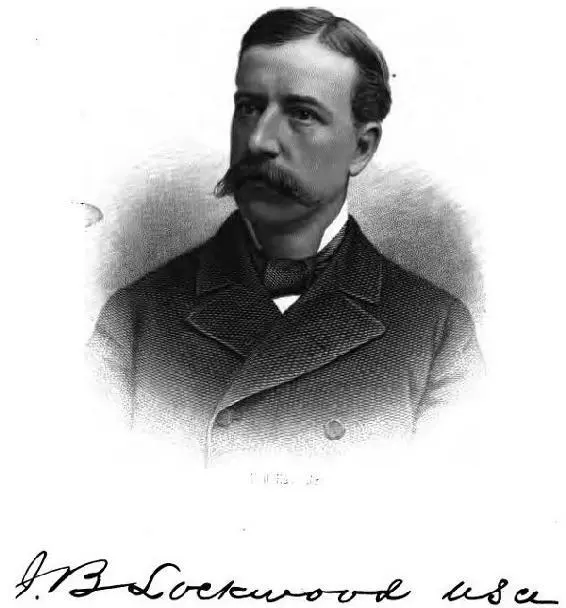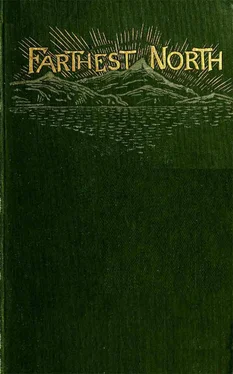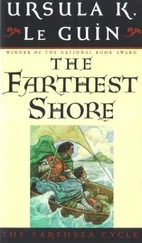Charles Lanman - Farthest North
Здесь есть возможность читать онлайн «Charles Lanman - Farthest North» — ознакомительный отрывок электронной книги совершенно бесплатно, а после прочтения отрывка купить полную версию. В некоторых случаях можно слушать аудио, скачать через торрент в формате fb2 и присутствует краткое содержание. Жанр: unrecognised, на немецком языке. Описание произведения, (предисловие) а так же отзывы посетителей доступны на портале библиотеки ЛибКат.
- Название:Farthest North
- Автор:
- Жанр:
- Год:неизвестен
- ISBN:нет данных
- Рейтинг книги:3 / 5. Голосов: 1
-
Избранное:Добавить в избранное
- Отзывы:
-
Ваша оценка:
- 60
- 1
- 2
- 3
- 4
- 5
Farthest North: краткое содержание, описание и аннотация
Предлагаем к чтению аннотацию, описание, краткое содержание или предисловие (зависит от того, что написал сам автор книги «Farthest North»). Если вы не нашли необходимую информацию о книге — напишите в комментариях, мы постараемся отыскать её.
Farthest North — читать онлайн ознакомительный отрывок
Ниже представлен текст книги, разбитый по страницам. Система сохранения места последней прочитанной страницы, позволяет с удобством читать онлайн бесплатно книгу «Farthest North», без необходимости каждый раз заново искать на чём Вы остановились. Поставьте закладку, и сможете в любой момент перейти на страницу, на которой закончили чтение.
Интервал:
Закладка:

PREFACE.
It is believed that this book, with its true but none the less stirring adventures, will be of much interest to the general public, as well as gratifying to the many warm friends of Lieutenant Lockwood. It will likewise correct any erroneous impressions which may have arisen from the publication of garbled extracts from the official journals kept by the different members of the Greely party and, by order of the War Department, laid open to the public. By this order, Lockwood’s journal and those of others became public property, and hence any reference to them in advance of their official publication is allowable.
The few pages devoted to the early life can not be expected to especially interest the general public, but will gratify Lieutenant Lockwood’s friends. They are here produced to give them permanency, and to show his sterling character.
No attempt is here made to give a history of the Expedition, and only so much of Lockwood’s journal is produced as shows his connection therewith. The voyage to Lady Franklin Bay is given more in detail, as it presents a lively picture of an interesting people not much known, and as it exhibits the buoyant spirits with which he entered upon the work, before dissensions in camp had checked them, though without marring his faithfulness and energy. The important part he had in the enterprise, his zeal, energy, and loyalty to his chief and to the cause, all are fully set forth, and will be more clearly seen when the more elaborate history of the Expedition shall be published by Lieutenant Greely, as will shortly be done.
Although the journal has been freely used, its language and style have not been closely followed, except in those parts quoted which refer to Lockwood’s sentiments and feelings. The deep pathos of these could be expressed as well in no other words.
His journal is very full and complete on the perilous boat-voyage to Cape Sabine, and in the heart-rending struggle for life in that ever-memorable hut where he and so many others laid down their lives. This has purposely been reduced to a few pages, giving the story only so far as Lieutenant Lockwood was connected with it. The same, may be said as to the home-life at the station on Lady Franklin Bay.
The portrait of Lieutenant Lockwood is from an excellent photograph taken a short time before he started for St. John’s, and two of the woodcuts are from photographs by Sergeant Rice. “Arctic Sledging” was made up from a description and a sketch by Sergeant Brainard, and “Farthest North” from a sketch by Lieutenant Lockwood.
The map is a reproduction of that published by the London Geographical Society, which is an exact transcript of maps drawn by Lieutenant Lockwood and submitted by him to Lieutenant Greely with reports of sledge-journeys. This map gives the names agreed upon by Lieutenant Greely and Lieutenant Lockwood, and are those referred to in the journal and in this book. It is much to be regretted that many of these names differ from those on the official map published by authority to the world. The names first given commemorate events connected with those wonderful sledge-journeys, as will be seen in the text; and, if a few unimportant lakes and points were named after friends and relatives, this might have been conceded to one who accomplished so much, and that much so well. The map of the London Geographical Society will probably live, and the other perish, as it should.
Captain Markham, Royal Navy, soon after the return of the Greely Expedition, declared, in articles published in a leading English magazine, that Lockwood never got beyond Cape Britannia, and that he mistook Cape May for that cape, etc. It was thought that, when the history of this sledge-journey was better known, Markham would be glad to withdraw this ungenerous aspersion. This is done so far as to admit that Lockwood did reach 83° 24′ north latitude, 44° 5′ west longitude; but it is now said, in the article “Polar Regions,” of the new Encyclopædia Britannica, written by the captain’s brother, that all this region had previously been explored and exhaustively examined by the English expedition of 1875-’76.
This is very remarkable, in view of the fact that Lockwood Island, which was reached by Lockwood, is one hundred geographical miles east and forty miles north of Cape Britannia which Beaumont saw at the distance of twenty miles, but never reached.
In the same article are expressed sentiments in accord with those contained in this book, viz.: “If the simple and necessary precaution had been taken of stationing a depot-ship in a good harbor at the entrance of Smith’s Sound, in annual communication with Greely on one side and with America on the other, there would have been no disaster. If precautions proved to be necessary by experience are taken, there is no undue risk or danger in polar enterprises. There is no question as to the value and importance of polar discovery, and as to the principles on which expeditions should be sent out. Their objects are exploration for scientific purposes and the encouragement of maritime enterprise.”
CHAPTER I. – EARLY LIFE.
In the following pages, it is proposed to record the personal history of an American hero whose fortune it was, at the sacrifice of his life, to visit and explore the utmost limit in the Arctic regions ever attained by human skill and enterprise. Aside from the information communicated to me by his family, the materials placed in my hands consist of his private correspondence and various journals which he faithfully kept while serving his country on the Western frontiers, as well as in the inhospitable domain of the North. As the poet Fitz-Greene Halleck wrote about a kindred character—
“He lived, as mothers wish their sons to live,”
and, on the score of fidelity to duty,
“He died, as fathers wish their sons to die,”
leaving a name that will long be honored in every civilized land as that of a martyr in the cause of geographical exploration.
Many of those connected with the Naval Academy at Annapolis, Maryland, before the civil war, will remember a playful and mischievous boy, whose ready smile and cheerful ways beguiled them in their hours of relaxation. Others who were at that school after the war will remember the same boy, grown into a youth of sixteen years, rugged in aspect, devoted to manly sports, and assiduous in all his duties. It is the story of his brief but eventful life to which this volume is devoted, written for the information of his friends and all those who admire true heroism and rare abilities when allied to sufferings for the public weal.
James Booth Lockwood was the second son and third child of General Henry H. Lockwood and Anna Booth Lockwood. He was born at the Naval Academy, Annapolis, on the 9th of October, 1852, at which time and place his father—a Professor of Mathematics in the Navy—instructed the midshipmen in the military branches, as he had done for many years before. Both his parents were from the State of Delaware, and came from the best stock of that State; and, as his father taught his students “how to shoot,” and prepare themselves for the conflicts of life, it was quite natural that the son should have acquired a love of noble deeds and adventure.
Like many boys, he had his narrow escapes from death, one of which occurred in April, 1860, when, having fallen into the river from the dock, he was rescued in an insensible condition, and restored to life with great difficulty. This escape must have been recalled by him with special emotion in after-years amid his struggles with the ice of Smith’s Sound.
Читать дальшеИнтервал:
Закладка:
Похожие книги на «Farthest North»
Представляем Вашему вниманию похожие книги на «Farthest North» списком для выбора. Мы отобрали схожую по названию и смыслу литературу в надежде предоставить читателям больше вариантов отыскать новые, интересные, ещё непрочитанные произведения.
Обсуждение, отзывы о книге «Farthest North» и просто собственные мнения читателей. Оставьте ваши комментарии, напишите, что Вы думаете о произведении, его смысле или главных героях. Укажите что конкретно понравилось, а что нет, и почему Вы так считаете.












